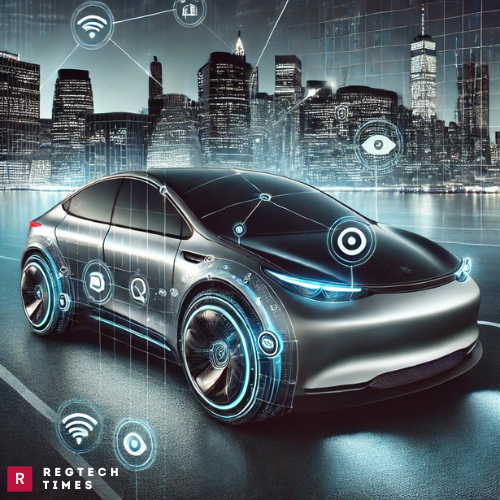The U.S. government is considering a significant move to ban Chinese-made smart cars, citing national security concerns. The Department of Commerce recently proposed new regulations aimed at preventing the sale of these vehicles in the United States. This proposal stems from worries that these cars could be used for espionage or sabotage, making this issue more than just a trade dispute. Instead, it’s part of an escalating technology and security conflict between the U.S. and China, centered around the risks posed by foreign-made smart cars.
As vehicles become increasingly dependent on software and internet connectivity, experts have raised alarms about potential vulnerabilities in their design. The rise of smart cars has brought about substantial benefits, but also the possibility that they could be misused for malicious purposes.
The Technology Behind Smart Cars
Smart cars are packed with advanced technology, including sensors, cameras, microphones, and tracking systems, all of which are controlled by sophisticated software. These vehicles are connected to the internet, allowing them to receive real-time updates, monitor performance, and interact with navigation systems. However, this reliance on connectivity also opens the door to cybersecurity risks.
U.S. officials are particularly concerned about Chinese-made smart cars due to the potential for foreign interference. The government has suggested that the technology found in these vehicles could be used to collect vast amounts of personal data from American drivers. This data could include everything from GPS coordinates to audio and video recordings, raising fears of large-scale surveillance.
These concerns are not unfounded. The U.S. has faced several cybersecurity breaches in recent years, many of which have been traced back to foreign actors, including China. With the growing number of smart cars on the road, officials believe that these vehicles could become the latest target for espionage.
Enhancing AML Law: China’s Proactive Steps and Hong Kong’s Regulatory Changes
Espionage Risks and Data Collection
The primary fear surrounding smart cars is their potential use as tools for espionage. By gathering data from drivers, foreign governments or entities could monitor the movement of U.S. citizens, track important personnel, or even collect sensitive information. In an era where much of daily life is digitally recorded, smart cars represent a new frontier for data collection.
Beyond individual privacy, U.S. officials are concerned about national security. Smart cars traveling near military installations, government facilities, or critical infrastructure could gather intelligence on these sensitive locations. This information, if accessed by foreign powers, could provide strategic advantages in the event of a conflict.
Sabotage: The Dark Side of Smart Cars
While espionage is a serious concern, the possibility of sabotage poses an even graver threat. The U.S. government has warned that smart cars could be remotely manipulated to cause widespread disruption. The software in these vehicles could be exploited to take control of them, leading to accidents, road blockages, and even coordinated attacks during times of war.
White House national security adviser Jake Sullivan recently pointed to evidence of Chinese malware being pre-positioned in U.S. critical infrastructure. This raises fears that a similar strategy could be employed with smart cars, allowing foreign powers to remotely control or disable millions of vehicles at once.
In such a scenario, a central authority could take control of a fleet of Chinese-made smart cars in the U.S., causing widespread chaos. These fears highlight the vulnerability of vehicles that rely on internet-connected software and underline why the U.S. government is taking the issue seriously.
The Path Forward: National Security Over Trade
The decision to consider banning Chinese-made smart cars is being framed as a national security measure, not just an economic move. While trade disputes between the U.S. and China are common, this proposal focuses on protecting U.S. infrastructure and citizens from potential threats posed by technology.
The concerns go beyond immediate security risks. Smart cars typically have a lifespan of 10 to 15 years, meaning that the risks associated with them could last well into the future. If foreign actors gain the ability to control or disrupt these vehicles, the consequences could be catastrophic.
As the U.S. continues to investigate the risks posed by these cars, this issue is likely to remain a focal point in the ongoing technological rivalry between the U.S. and China. With Washington determined to protect its national security, the future of Chinese-made smart cars in the U.S. remains uncertain.


